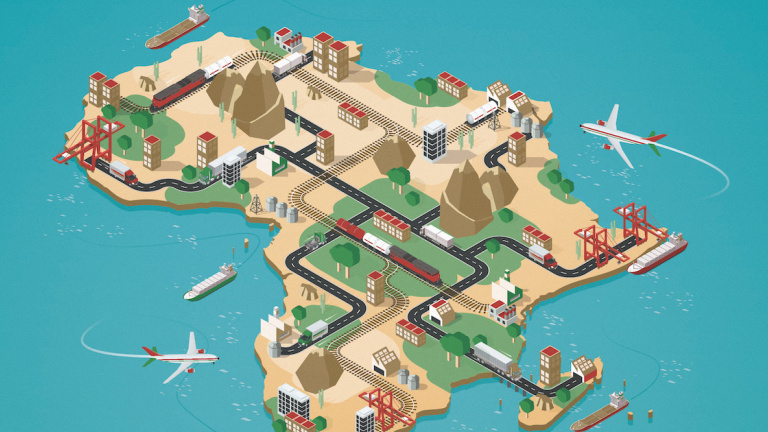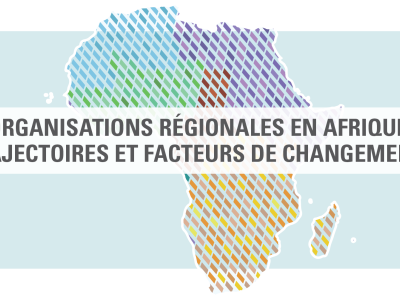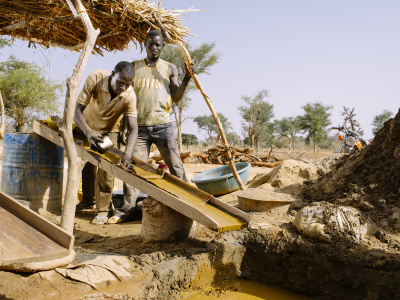
Breaking down non-tariff barriers
Non-tariff barriers will make or break the African Continental Free Trade Area (AfCFTA). On the ground, barriers like cumbersome customs procedures and roadblocks are what really matter to traders. These are now being tackled with a groundbreaking online tool at tradebarriers.africa.
The real barriers to trade in Africa
Zambian traders bringing molasses into Botswana on the Kazungula Ferry were desperate when border officials asked them for a fumigation certificate. The Zambians were sure this wasn’t required. But the officials denied entry. This meant the traders had to pay local storage charges and lost a good business opportunity.
Achieving the stated aim of the AfCFTA, ‘to create one African market’, will require eliminating such non-tariff barriers (NTBs). NTBs are restrictive regulations and procedures, other than tariffs, that add to the difficulty and cost of importing or exporting products. NTBs run the gamut from procedural delays at borders to highly technical product safety requirements.
The United Nations Conference on Trade and Development (UNCTAD) estimates that NTBs are at least three times more restrictive than regular customs duties. An UNCTAD report suggests that African countries could gain US$ 20 billion in GDP growth by tackling such barriers at the continental level.
African nations also recognise the significance of NTBs, and have adopted an Annex to the AfCFTA Agreement specifically dedicated to eliminating NTBs. The ‘NTB Annex’ mandates the establishment of a mechanism for the identification, categorisation and elimination of NTBs.
A groundbreaking online mechanism
The African Union has collaborated with UNCTAD to develop and implement this mechanism. Since 13 January 2020, anyone can report an NTB to intra-African trade through the AfCFTA NTB Reporting, Monitoring and Eliminating Mechanism found online at tradebarriers.africa. The simple and user-friendly website allows traders to report NTBs they encounter when trading within Africa. Governments are then obliged to respond and eliminate the barriers.
Instead of reinventing the wheel, the continental mechanism builds on the success of the Tripartite NTB monitoring mechanism in Eastern and Southern Africa and a similar private sector initiative by Borderless Alliance in West Africa. These have already resolved 634 and 237 NTBs in their respective regions. The AfCFTA NTB online mechanism is fully compatible with these systems. It connects, improves and expands them to the entire continent.
Private sector reports
The key feature of the mechanism is that it is open to the private sector. Anyone can register and report an NTB they encounter – anywhere on the African continent. The online tool can be used by micro, small and medium-sized companies, informal traders, and youth and women business operators. It enhances transparency and gives equal voice to all stakeholders, small or large.
After a 1-minute online registration process, a user can log in and submit an NTB complaint. The reporting form is simple: Where are you from? Where did you experience the barrier? What are the details of the NTB? What products are you trading? Can you upload any documentation or pictures to support your case? Then click ‘submit’.
The complaint is then instantly sent to the concerned governments and the AfCFTA Secretariat.
Government response
To resolve NTBs, governments have appointed national NTB focal points. These are officials trained in the use of the online tool. They receive NTB complaints in real time and are mandated under the AfCFTA to resolve the barriers reported within set deadlines. Communication and exchange of relevant documents is facilitated through the online tool.
The user interface is extremely intuitive. Anyone who can use Facebook can operate the system, even without reading the manual. Email alerts are sent to the focal points when a new complaint is registered or if a government submits a comment on an ongoing case.
Language (non-tariff) barriers?
Africans speak more than 1,000 languages. Linguistic challenges are therefore inevitable in any cross-continent information system. For example, a Swahili-speaking truck driver from Tanzania may want to lodge a complaint about the number of import documents required when delivering cotton fabric to Mozambique. That complaint would then need to be sent to Portuguese-speaking Mozambican officials, raising a possible language barrier.
The NTB online tool mitigates potential language difficulties with a plug-in that automatically translates complaints from English, French, Arabic, Portuguese, Swahili and 12 other African languages into the official language of the receiving country.

AfCFTA online tool for reporting, monitoring and eliminating NTBs
More than goodwill
While the goodwill of governments is an essential ingredient for successful elimination of NTBs, the AfCFTA mechanism is built on stronger foundations. Annex 5 of the AfCFTA Protocol on Trade in Goods establishes institutions and mandatory procedures to ensure NTB complaints are dealt with adequately and in good time. Besides the national focal points and public-private National Monitoring Committees, a dedicated NTB Coordination Unit will be created in the newly established AfCFTA Secretariat in Accra, Ghana. The unit will monitor barriers and progress towards their resolution. Furthermore, an NTB sub-committee of all State Parties will meet regularly to assess progress and challenges.
Appendix 2 of the NTB Annex outlines mandatory processes and deadlines. For example, an initial response to an NTB complaint must be given within 20 days. If no resolution is found after 60 days, the parties can request appointment of an independent facilitator. Should resolution still prove difficult, parties can take the issue to dispute settlement.
While these deadlines and procedures are crucial, they could still be daunting for small traders in need of a quick solution to a problem on the ground. The good news is that experience in the Tripartite region shows that many NTBs are resolved quickly, because the imposing country never had protectionist intentions. This suggests that traders will receive swift assistance. Nonetheless, mandatory procedures are in place to deal with tricky cases.
By Africans for Africans
A major boon for the NTB mechanism is the buy-in and ownership it enjoys on the African continent. The idea for the tool came from within Africa. It was negotiated by Africans, and its implementation is driven by Africans.
Development of the website and tool was overseen by all African countries in the context of the formal AfCFTA negotiating structures. The concept and website were scrutinised a dozen times during the negotiations by officials at different levels of the hierarchy – from technical experts to chief negotiators, senior trade officials and ministers. Finally, it was adopted and launched by more than 30 Heads of State at the Extraordinary Summit of the African Union in Niamey on 7 July 2019.
Strong political will and substantive involvement of African governments at all levels of the negotiation process are the basis for the sustainability of the NTB mechanism. Its importance is also reflected in the staffing numbers agreed for the prospective AfCFTA Secretariat, as the NTB coordination unit will be larger than units for most other subjects.
African Union member states have insisted on a strategy that is independent of donor funding. While some seed money for the NTB mechanism did come from donors, the African Union and its member states are already providing most of the necessary financial and human resources themselves. In the same spirit, UNCTAD’s support programme to the AfCFTA NTB mechanism, financed by the German government, spends 100% of the funds it provides in Africa and on Africans. All capacity built in the process will be on the continent.
Roadblocks ahead?
Arguably, governments have driven the development of the NTB mechanism thus far. Now is the time to raise private sector awareness of the tool. Fortunately, initial signs point to rapidly growing enthusiasm within the private sector. For example, West African chambers of commerce asked for a presentation on the NTB mechanism to be given at their meeting in Kaolack, Senegal, in February 2020. They reacted with excitement to the presentation and indicated their commitment to spread the news to their members.
Going forward, a big challenge will be to raise awareness among the less connected, small and informal traders in border communities. For this, each country will need to step up its own domestic efforts. The private sector will also need to see positive results early on, with NTBs resolved quickly. If no solution is found for the first reported cases, the credibility of the whole mechanism will be at risk.
Inclusiveness was a high priority during the AfCFTA negotiations on the NTB mechanism. Lack of internet connectivity at smaller border crossings could be an obstacle for many informal traders. To assist those without internet access, an offline short-messaging-service (SMS) feature will also be rolled out in the medium term. While we are only at the start of a long road, all signs indicate we are headed in the right direction. There is good reason for optimism. The AfCFTA NTB mechanism is ahead of the curve globally. It is an innovation the world will want to watch closely to see what it can learn from Africa and the AfCFTA.

About the author
Christian Knebel is an Economic Affairs Officer at the United Nations Conference on Trade and Development (UNCTAD). He is the manager of the UNCTAD support programme to the African Union on non-tariff barriers. Connect with Christian on Twitter @CK_Knebel.
The views expressed in this article are those of the author and do not necessarily reflect those of the United Nations.
Read the full magazine issue









